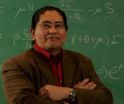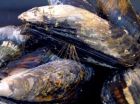BUCKINGHAMSHIRE, ENGLAND, February 17, 2013 (Press-News.org) SEAT has revealed the latest addition to its Leon range which will debut at the Geneva Motor Show in March.
The Leon SC is a striking three-door hatchback that is the perfect embodiment of the SEAT design language. Without compromising everyday usability, it becomes the most sporting model in the SEAT range, blending stunning looks with a functional interior - a mix of excellent workmanship and premium materials, with plenty of room for all occupants. At 380 litres, even the luggage compartment is as generously proportioned as that of the five-door variant.
"The new Leon SC is the design icon of the model line-up. It conveys the core values of the SEAT brand perfectly - design and dynamics, technology and quality, all at a fair price," said James Muir, President of SEAT S.A.
The Leon SC is packed with technology, including state-of-the-art infotainment, intelligent driver assistance systems, systematic weight reduction measures, the latest generation of engines, and a chassis tuned to strike the perfect balance between comfortable day-to-day use and engaging driving dynamics.
All engines feature direct injection with turbocharging, and combine outstanding efficiency with exceptional refinement. The TSI and TDI units, ranging from 1.2- to 2.0-litre, cover a performance spectrum of 105 PS to 184 PS. Every one combines power with cost effectiveness, with the cleanest 1.6-litre TDI emitting less than 100 g/km CO2.
Just like the five-door Leon, the three door Leon SC is offered in S, SE and FR specifications by SEAT UK.
"With its slightly shortened wheelbase, the Leon SC is the sportiest and most emotional member of the Leon family. It has the feel of a sports coupe, yet boasts an astonishing degree of functionality," said Dr. Matthias Rabe, Vice President of Research and Development at SEAT S.A.
With its perfectly balanced proportions, the new SEAT Leon SC cuts a fine figure from the very first glance. The relationship between its length, height and width, plus its short overhangs, convey its dynamics even at a standstill. Inspired by the design language developed through the IBE, IBL and IBX concept vehicles, the three-door compact car is the dynamic interpretation of the SEAT design language.
"We have given the three-door Leon SC a highly distinctive character - just deleting two doors would not have been enough for us. That is why we opted for the shorter wheelbase - although it is only 35 millimetres, the visual effect is very powerful. The result is a big difference in the expression of dynamics," said Alejandro Mesonero-Romanos, Head of SEAT Design.
The side profile of the new SEAT Leon SC displays a balanced relationship between metal and glass surfaces - vertically, this is around one-third glass to two-thirds body surface. This emphasises solidity and underscores the car's muscular stance. The characteristic, interrupted 'Linea Dinamica' runs rearward over the wheel arches, while the precisely sculpted 'blisters' on the sides are not completely straight, running instead in a very slight arc to increase surface tension. The expansive rear windscreen, with its coupe-like sweep, is 19 degrees more inclined compared with the five-door and has the form of an up-turned, stylised pentagon.
The new SEAT Leon SC is launched with a series of powerful and efficient TDI and TSI engines, all of which feature direct injection and turbocharging and are set up for rapid warm-up and low internal friction.
About SEAT:
SEAT is the only company in its sector with the full-range capacity to design, develop, manufacture and market cars in Spain. A member of the Volkswagen Group, the multinational has its headquarters in Martorell (Barcelona), exporting 80% of its vehicles to 75 countries.
Website: www.seat.co.uk
SEAT Introduces the New Leon SC
SEAT has revealed its new Leon SC which will debut at the Geneva Motor Show 2013.
2013-02-17
ELSE PRESS RELEASES FROM THIS DATE:
Previewing the next steps on the path to a magnetic fusion power plant
2013-02-16
Scientists around the world have crossed a threshold into a promising and challenging new era in the quest for fusion energy. So says physicist George "Hutch" Neilson, director of advanced projects at the U.S. Department of Energy's Princeton Plasma Physics Laboratory, in remarks prepared for the 2013 annual meeting of the American Association for the Advancement of Science in Boston.
The new phase has begun with the construction of ITER, a fusion facility of unprecedented size and power that the European Union, the United States and five other countries are building ...
Mentoring models to move minorities to majorities in STEM
2013-02-16
Evidence of a shift in U.S. demographics and importance of minorities took center stage during the Presidential election, but how do those growing toward majority acquire representation in our educational and technological communities?
Accelerating programs that mentor and move minorities forward to majorities in science, technology, engineering and math (STEM) is one method that is gaining traction, said Castillo-Chavez, one of a trio of Presidential Award for Excellence in Science, Engineering and Mathematics (PAESMEM) Mentors speaking at the American Association for ...
Strengthening speech networks to treat aphasia
2013-02-16
PROVIDENCE, R.I. [Brown University] — Aphasia, an impairment in speaking and understanding language after a stroke, is frustrating both for victims and their loved ones. In two talks Saturday, Feb. 16, 2013, at the conference of the American Association for the Advancement of Science in Boston, Sheila Blumstein, the Albert D. Mead Professor of Cognitive, Linguistic, and Psychological Sciences at Brown University, will describe how she has been translating decades of brain science research into a potential therapy for improving speech production in these patients. Blumstein ...
When good habits go bad
2013-02-16
BOSTON, MA -- Learning, memory and habits are encoded in the strength of connections between neurons in the brain, the synapses. These connections aren't meant to be fixed, they're changeable, or plastic.
Duke University neurologist and neuroscientist Nicole Calakos studies what happens when those connections aren't as adaptable as they should be in the basal ganglia, the brain's "command center" for turning information into actions.
"The basal ganglia is the part of the brain that drives the car when you're not thinking too hard about it," Calakos said. It's also ...
Mussels cramped by environmental factors
2013-02-16
The fibrous threads helping mussels stay anchored – in spite of waves that sometimes pound the shore with a force equivalent to a jet liner flying at 600 miles per hour – are more prone to snap when ocean temperatures climb higher than normal.
At the American Association for the Advancement of Science meeting in Boston, Emily Carrington, a University of Washington professor of biology, reported that the fibrous threads she calls "nature's bungee cords" become 60 percent weaker in water that was 15 degrees F (7 C) above typical summer temperatures where the mussels were ...
Mussel-inspired 'glue' for surgical repair and cancer drug delivery
2013-02-16
When it comes to sticking power under wet conditions, marine mussels are hard to beat. They can adhere to virtually all inorganic and organic surfaces, sustaining their tenacious bonds in saltwater, including turbulent tidal environments.
Northwestern University's Phillip B. Messersmith will discuss his research in a talk titled "Mussel-Inspired Materials for Surgical Repair and Drug Delivery" at the American Association for the Advancement of Science (AAAS) annual meeting in Boston. His presentation is part of the symposium "Translation of Mussel Adhesion to Beneficial ...
Using transportation data to predict pandemics
2013-02-16
In a world of increasing global connections, predicting the spread of infectious diseases is more complicated than ever. Pandemics no longer follow the patterns they did centuries ago, when diseases swept through populations town by town; instead, they spread quickly and seemingly at random, spurred by the interactions of 3 billion air travelers per year.
A computational model developed by Northwestern University's Dirk Brockmann could provide better insight into how today's diseases might strike. Brockmann, an associate professor of engineering sciences and applied mathematics ...
Historic legacy of lead pollution persists despite regulatory efforts
2013-02-16
Efforts to reduce lead pollution have paid off in many ways, yet the problem persists and will probably continue to affect the health of people and animals well into the future, according to experts speaking at the annual meeting of the American Association for the Advancement of Science (AAAS) in Boston.
"Things have substantially improved with the virtual elimination of leaded gasoline, restrictions on lead paint, and other efforts to limit releases of industrial lead into the environment. But the historic legacy of lead pollution persists, and new inputs of industrial ...
Studying networks to help women succeed in science
2013-02-16
For women in science and research, finding a network of colleagues in their specialized area might be difficult: relevant researchers and activists can be spread across generations, cultures and continents. Finding a mentor within this group proves particularly difficult for young women and minorities.
Northwestern University's Noshir Contractor will discuss his network research in a presentation titled "Understanding and Enabling Networks Among Women's Groups in Sustainable Development" at the American Association for the Advancement of Science (AAAS) annual meeting ...
Teaching the brain to speak again
2013-02-16
Cynthia Thompson, a world-renowned researcher on stroke and brain damage, will discuss her groundbreaking research on aphasia and the neurolinguistic systems it affects Feb. 16 at the annual meeting of the American Association for the Advancement of Science (AAAS). An estimated one million Americans suffer from aphasia, affecting their ability to understand and/or produce spoken and/or written language.
Thompson, Northwestern's Ralph and Jean Sundin Professor of Communication Sciences, will participate in a 10 a.m. media briefing on "Tools for Regaining Speech" in Room ...
LAST 30 PRESS RELEASES:
Science reveals why you can’t resist a snack – even when you’re full
Kidney cancer study finds belzutifan plus pembrolizumab post-surgery helps patients at high risk for relapse stay cancer-free longer
Alkali cation effects in electrochemical carbon dioxide reduction
Test platforms for charging wireless cars now fit on a bench
$3 million NIH grant funds national study of Medicare Advantage’s benefit expansion into social supports
Amplified Sciences achieves CAP accreditation for cutting-edge diagnostic lab
Fred Hutch announces 12 recipients of the annual Harold M. Weintraub Graduate Student Award
Native forest litter helps rebuild soil life in post-mining landscapes
Mountain soils in arid regions may emit more greenhouse gas as climate shifts, new study finds
Pairing biochar with other soil amendments could unlock stronger gains in soil health
Why do we get a skip in our step when we’re happy? Thank dopamine
UC Irvine scientists uncover cellular mechanism behind muscle repair
Platform to map living brain noninvasively takes next big step
Stress-testing the Cascadia Subduction Zone reveals variability that could impact how earthquakes spread
We may be underestimating the true carbon cost of northern wildfires
Blood test predicts which bladder cancer patients may safely skip surgery
Kennesaw State's Vijay Anand honored as National Academy of Inventors Senior Member
Recovery from whaling reveals the role of age in Humpback reproduction
Can the canny tick help prevent disease like MS and cancer?
Newcomer children show lower rates of emergency department use for non‑urgent conditions, study finds
Cognitive and neuropsychiatric function in former American football players
From trash to climate tech: rubber gloves find new life as carbon capturers materials
A step towards needed treatments for hantaviruses in new molecular map
Boys are more motivated, while girls are more compassionate?
Study identifies opposing roles for IL6 and IL6R in long-term mortality
AI accurately spots medical disorder from privacy-conscious hand images
Transient Pauli blocking for broadband ultrafast optical switching
Political polarization can spur CO2 emissions, stymie climate action
Researchers develop new strategy for improving inverted perovskite solar cells
Yes! The role of YAP and CTGF as potential therapeutic targets for preventing severe liver disease
[Press-News.org] SEAT Introduces the New Leon SCSEAT has revealed its new Leon SC which will debut at the Geneva Motor Show 2013.


